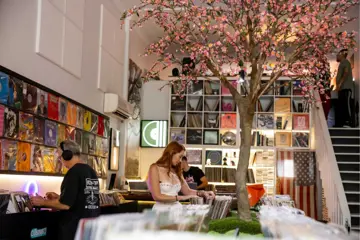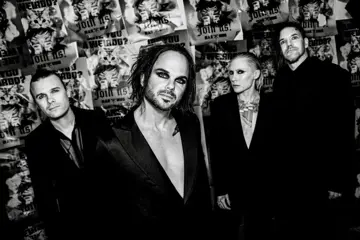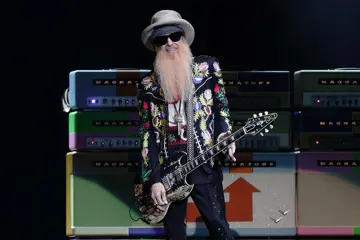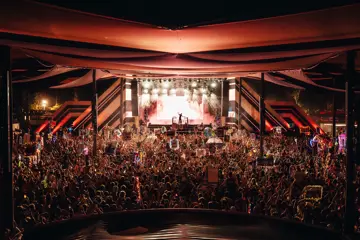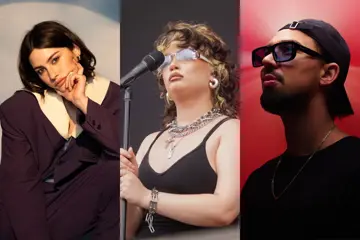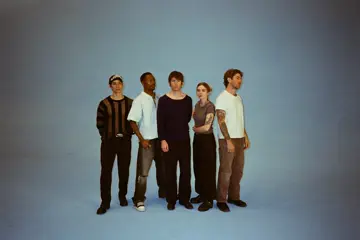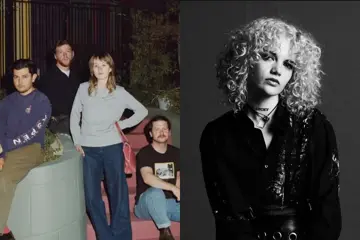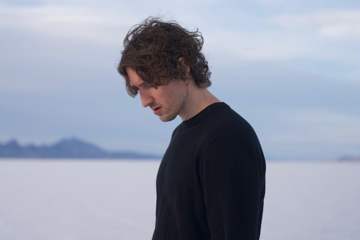The organisation was borne from the Bjelke-Petersen Government's refusal to accept funding to help stop the spread of AIDs in the mid-1980s.
“We are a Lesbian Gay Bisexual Trans Health Organisation,” Clementson begins. “We started off back in the 80s as an AIDS council. There was a group of really strong community minded people, concerned gay men and lesbians mostly and some of them were already HIV positive. What they saw were lots of their friends were dying of AIDS. As far as most of mainstream people in the 80s, it was a real problem to be same-sex attracted, it wasn't until about 1991 that homosexuality was legalised in Queensland. The Bjelke-Petersen government decided they wouldn't give any money to those dirty poofters who were dying – they deserved to die because they're having sex and this is God's punishment.
“There was a group of people who said 'this is important because our friends are dying'. Not just their friends, but their lovers. There was a group of people who decided to form the A-Team, which was the AIDS-team. They realised this was a big problem and realised if they didn't do something about it, it was going to kill them.”
While funding wasn't available to this group directly, there was a group who acknowledged the importance of such work.
“The unsung heroes of Queensland's fight to stop HIV were the Sisters of Mercy who run the Mater Hospital, because Bjelke-Petersen didn't mind giving money to the Sisters of Mercy,” Clementson explains. “They effectively laundered the money. The money had to be spent properly, so the A-Team set up the Queensland AIDS Council and for years that's what we were, because even though HIV has become so much more manageable, it's still a big issue.”
But when it comes to the prevention of HIV, Clementson makes no bones about how it is prevented.
“The people who really stop it happening are the people who, every time they're going to fuck someone up the arse, they wear a condom, or they do something else that will ensure they're not passing on or getting HIV,” he says. “Anyone who's HIV positive, they know how shit it is and they're the really important people who make sure that no one else gets it.”
Don't miss a beat with our FREE daily newsletter
The famous 1987 'Grim Reaper' advertising campaign adopted by National Advisory Committee on AIDS really brought the issue to light on a wide scale and while Clementson acknowledges this, he says that the stigma that surrounds the disease barely seems to have dulled.
“It was an effective campaign in the sense for letting people know that HIV exists, the only problem is the thing that nearly 30 years later we're still dealing with is that people are terrified of HIV,” he says. “The worst thing anyone living with HIV has to do is tell their parents or their partner or their friends that they're HIV positive. Doctors are dealing with HIV quite well, there's no cure for it but it is a chronic, manageable illness.”
However, doctors are now realising the incredibly negative impact HIV treatment is having on the health of those who require it.
“The job of these treatments is to keep your immune system working, because HIV destroys your immune system and that's how people used to die of AIDS,” Clementson explains. “What we're discovering now – treatments became effective in 1996 – 15 years later, people who started treatments then who may have been in their 30s are now in their 50s and now they have the body of a 70-year-old. It doesn't impact too greatly on what you look like, but your immune system just never turns off. So people get heart attacks and kidney failure and things you wouldn't expect to happen until you're in your 70s and 80s. So there are some good clinical reasons why you don't want to get HIV, because it will give you a really old body.
“This is the reason why we get funding from Queensland Health to stop the spread of HIV. But the people who actually stop the spread of HIV mostly are gay men. As soon as, back in the 80s, gay men realised that the way you got it was from having unprotected anal sex, they started wearing condoms. We've not been able to find anything since that's as effective as a condom for preventing the spread of HIV. But you can imagine, after 30 years, people are sick and tired of hearing 'wear a condom'.”
Thus the organisation looks for more inventive ways of spreading this vitally important message. Their Rip & Roll campaign, an image from which adorns the cover of this week's Time Off, is the latest example. Clementson says the vast majority of gay men are doing the right thing, but realistically acknowledges very real circumstances in which their fastidiousness slips.
“They're already doing the right thing and they need to know it's worth keeping up. [Campaigns like Rip & Roll are] about reinforcing their decision. Occasionally when people go out, they might be having too much to drink or taking too many E's or having too much crystal [methamphetamine] and it's really difficult to hold on to what you know you're going to do. People in those circumstances occasionally forget to use a condom.
"The effect of crystal means that people can fuck for hours and it's beautiful and they love that. They might start off wearing a condom but their dick's about to fall off because they've done it for so long. Some guys who are older can't maintain an erection when they have to use a condom. But there are things now that people can take so that they can maintain an erection – Viagra, Cialis... there's a whole range of things.
“Our value base as an organisation is that people do what they want to do, it's really good that they make sure they don't hurt anyone else in the process and it's really good that they don't become addicted to having too much.”
But this is just one example of the kind of work that Healthy Communities does. Throughout the conversation Clementson gives many examples of people who have issues with how they identify in a world with distinct male and female as well as straight and gay constructs. He says people's lack of understanding of trans choices is probably more prevalent in our specific urban society than out-and-out homophobia.
“There's not much real homophobia,” he says. “There's always the rednecks who you need to be careful of in the Valley, they're likely to be drunk and if they see two men or two women kissing they just wanna 'bash the poofters', but generally not from the people who live around the Valley. Or people who are in, say, the music scene. Most young people just don't understand why you would discriminate against someone because they're fucking a man rather than fucking a woman.
“The one really big thing that people don't understand, because they don't have a lot of experience of it, is trans people. It really gets up their nose because they know someone who was a man and now he's become a woman, or who was a woman and has now become a man.”
One of the organisations employees has recently undergone surgery to complete the physical transformation from male to female.
“Amanda, she was born as a man and she now has gone through a total transition to become a woman. She went over to Thailand to get a vagina. She went over there with her mum, her mum probably was quite shocked because she had a son who became a woman.
“That's why our organisation exists. Most people respect that people are different and if people are different then that's fine, if it makes them happy.”
When it boils down to it, equity for the LGBT community is what the organising wants.
“Healthy Communities is about getting all the important issues – for lesbians, for gay men, for queer people, for trans people – out there and ensuring they have equity.”
For more information about Queensland Association of Healthy Communities, visit their website.

